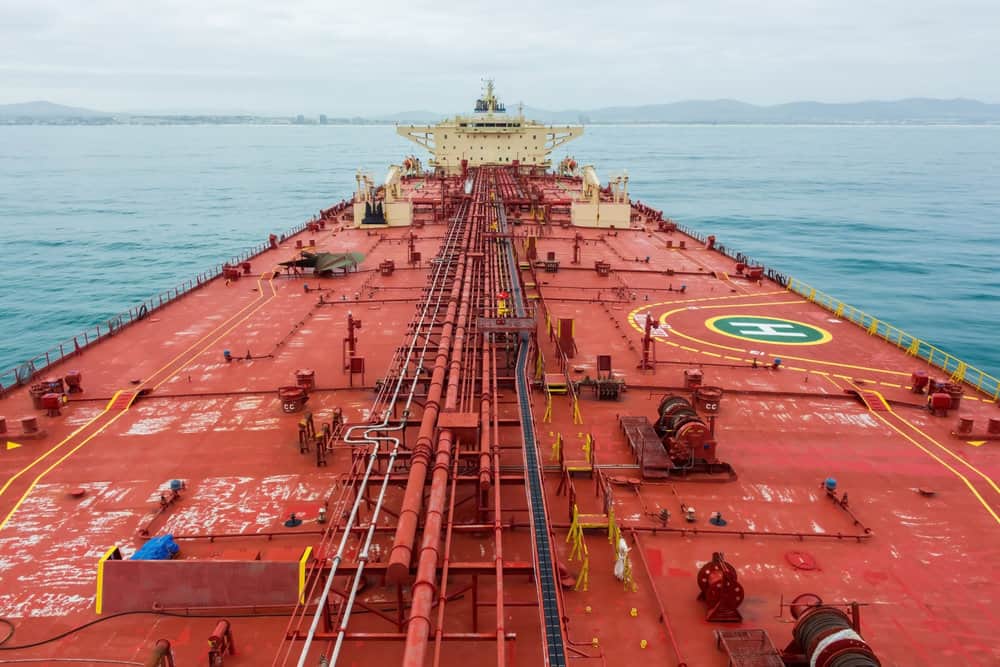
The U.S. has set new guidelines for oil companies, marine insurers, shipping industry associations and flag registries following updated intelligence on tactics used by North Korea and Syria to evade international sanctions.
The updated guidelines, issued by the U.S. Department of the Treasury’s Office of Foreign Asset Control (OFAC), U.S. Department of State, and the U.S. Coast Guard (USCG), also adds a new list of vessels believed to have engaged in ship-to-ship (STS) transfers with North Korean tankers or ships carrying North Korean coal.
“Treasury will continue to enforce our sanctions, and we are making it explicitly clear that shipping companies employing deceptive tactics to mask illicit trade with North Korea expose themselves to great risk,” said Treasury Secretary Steven Mnuchin.
After the North Korean advisory was issued on March 21, it was uncertain whether it was still valid the next day, when President Donald Trump reversed a related decision made by his administration to tighten sanctions against the country.
“We haven’t received confirmation from the State Department, but there’s no reason to believe that the advisory isn’t still valid” despite the President’s sanctions reversal, a Coast Guard source told FreightWaves.
The U.S., along with the United Nations, have gradually been stepping up sanctions on North Korean oil and coal shipping in an effort to cut financing for the country’s nuclear program.
To evade those sanctions, Pyongyang has used tactics such as transferring cargo to and from Chinese and Russian tankers while the ships are at sea to avoid detection. North Korean ships also evade detection by turning off a vessel’s location transponder, known as an automatic identification system (AIS), and by falsifying ship flags or reflagging illegally under another country.
Since an initial advisory warning against such practices issued in February 2018, the U.S. said North Korea has altered the geographic location of its STS transfers, and has also resumed exports of coal in the Gulf of Tonkin, off the coast of Vietnam.
North Korean ports received at least 263 tanker deliveries of refined petroleum procured from UN-prohibited ship-to-ship transfers in 2018, according to OFAC. “If these tankers were fully laden when they made their delivery, North Korea would have imported 3.78 million barrels, or more than seven and a half times the allowable amount” under UN resolutions.
The North Korean guidelines recommend that marine insurers, commodity traders, and other companies in the supply chain that provide oil and refined products to tankers in the East China Sea to enhance their maritime research efforts – for example, to check the AIS history of the vessels that will carry their product to find out if the AIS had been switched off in the past.
It also advises shipping associations to create a similar advisory for their members “to raise awareness of North Korea’s deceptive practices and the ways to mitigate the risks of involvement in illicit shipping activities.”
The Syrian shipping advisory, issued on March 25, is part of an ongoing policy by the United States to isolate the Assad regime from global trade “in response to atrocities committed by the regime against the Syrian people,” OFAC stated.
Ship registries, insurers, charterers, vessel owners or port operators “should consider investigating vessels that appear to have turned off their AIS while operating in the Mediterranean and Red Seas,” according to the Syrian advisory.
U.S. companies that attempt to conduct business related to North Korea or Syrian shipping can face penalties of at least $295,000 per violation
<div class="
s










